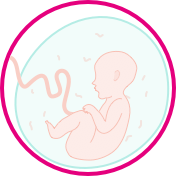Research goals
- To develop interventions and to identify new targets for IBD,
- to characterize (early) microbial changes in the gut microbiota of IBD patients and high-risk individuals,
- to functionally characterize the associated colitogenic and protective bacteria of IBD patients,
- to identify metabolic and proteomic changes in the gut microbiome of IBD patients,
- to study the microbial gut-skin axis in detail and to investigate the microbiome in important skin-comorbidities of IBD (psoriasis, pyoderma gangrenosum) in detail,
- to examine the influence of pregnancy-associated microbiota changes on intestinal inflammatory responses in IBD,
- to study the influence of the IBD risk-factor smoking on the lung and gut microbiome in greater detail,
- to test evolutionary principles in IBD microbiome research,
- to use model-based approaches to gain insight into functional disease-associated changes in microbiota metabolism and identify potential interventions, and
- to ameliorate IBD by targeting intestinal epithelial energy metabolism (glycolysis) and manipulation of the microbiome.









